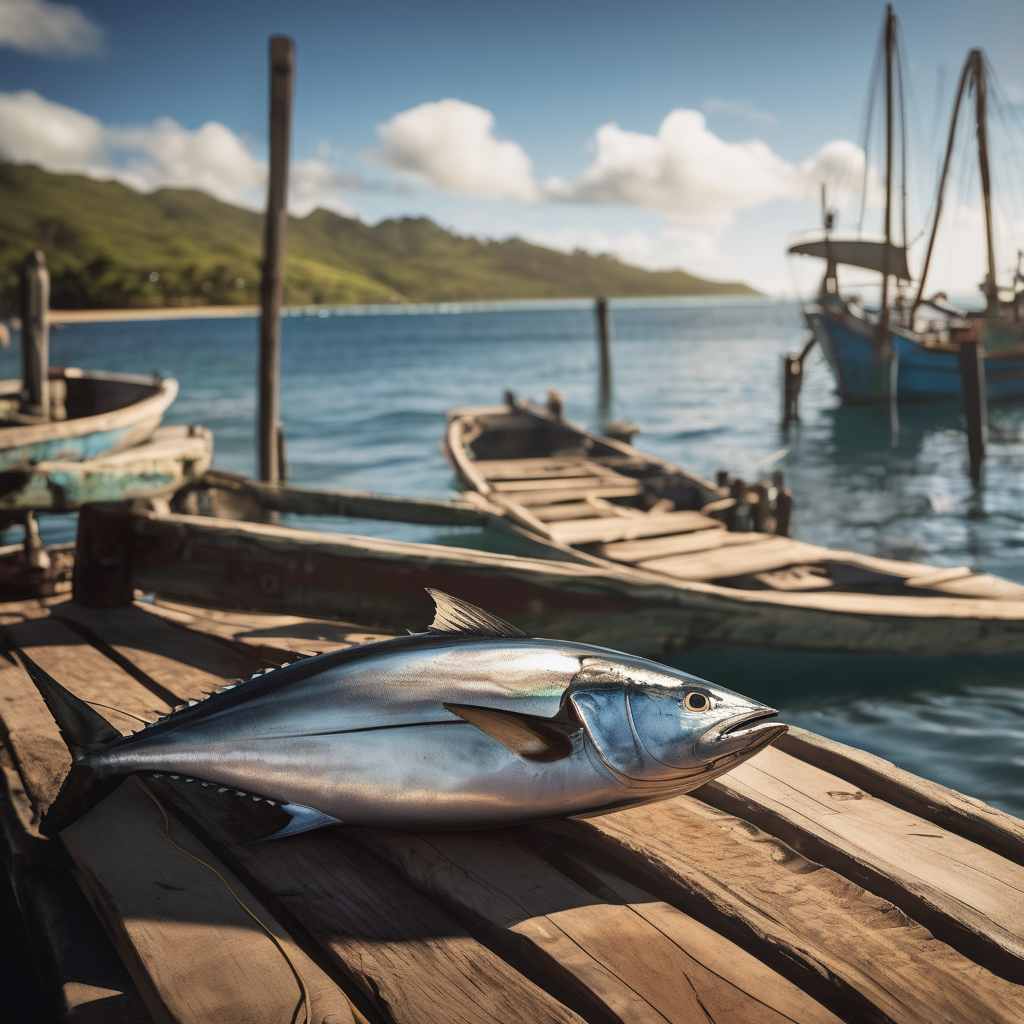The East New Britain Initiative (ENBi) is swiftly becoming a significant platform designed to leverage economic, social, and employment prospects stemming from the Pacific tuna industry. This was highlighted by Franklin Forau, Investment Facilitation Adviser at the Pacific Islands Forum Fisheries Agency (FFA), during his address at the 9th Pacific Tuna Forum held in Nadi, Fiji. Forau underscored that ENBi represents a regional shift towards enhanced Pacific ownership and the creation of value within the tuna supply chain.
“Over 50 percent of the world’s tuna comes from our waters, yet only about 15 percent is processed locally,” Forau pointed out, stressing the pressing need for transformation. Launched in 2023 with backing from regional leaders, the ENBi initiative aligns with the 2050 Strategy for the Blue Pacific Continent, focusing on encouraging collaboration among Pacific governments, industry players, and development partners to foster sustainable and inclusive growth across the region.
The initiative employs a ‘hubs and spokes’ model to identify key processing centers in Papua New Guinea, Fiji, Samoa, the Solomon Islands, and the Federated States of Micronesia. This strategic model allows smaller nations to tap into shared infrastructure, access broader markets, and benefit from combined expertise.
Led by Papua New Guinea, ENBi’s Working Group, supported by FFA members and stakeholders, is dedicated to conducting studies and formulating investment plans aimed at establishing a regional development fund. This fund is anticipated to enhance access to financing, infrastructure, and technical assistance, all vital for improving local tuna processing and value addition.
“Building on our strong fisheries management,” Forau stated, “the Pacific now has a unique opportunity to translate that success into tangible economic and social benefits. ENBi provides the roadmap for this transformation—together, as a region.”
The initiative aligns with previous discussions, such as those from the Honiara Fisheries Summit, which have emphasized the necessity of cooperation among Pacific Island nations to address shared challenges, including high operational costs and insufficient infrastructure. These efforts resonate with commitments under Sustainable Development Goal 14.4, advocating for responsible fisheries management and ecological health.
The hopeful vision articulated by ENBi mirrors a broader movement toward sustainable development and improved livelihoods for Pacific communities. By promoting innovation and ensuring equitable participation, ENBi aims to transform the Pacific tuna industry into a key driver of economic prosperity for current and future generations. The coordinated efforts surrounding this initiative symbolize a promising path toward resilience and sustainable development for the Pacific region as a whole.
